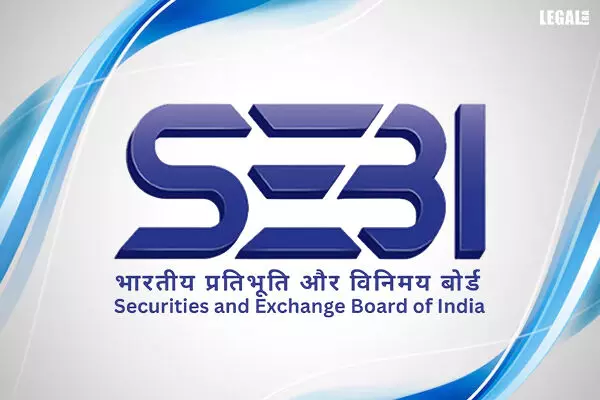- Home
- News
- Articles+
- Aerospace
- AI
- Agriculture
- Alternate Dispute Resolution
- Arbitration & Mediation
- Banking and Finance
- Bankruptcy
- Book Review
- Bribery & Corruption
- Commercial Litigation
- Competition Law
- Conference Reports
- Consumer Products
- Contract
- Corporate Governance
- Corporate Law
- Covid-19
- Cryptocurrency
- Cybersecurity
- Data Protection
- Defence
- Digital Economy
- E-commerce
- Employment Law
- Energy and Natural Resources
- Entertainment and Sports Law
- Environmental Law
- ESG
- FDI
- Food and Beverage
- Gaming
- Health Care
- IBC Diaries
- In Focus
- Inclusion & Diversity
- Insurance Law
- Intellectual Property
- International Law
- IP & Tech Era
- Know the Law
- Labour Laws
- Law & Policy and Regulation
- Litigation
- Litigation Funding
- Manufacturing
- Mergers & Acquisitions
- NFTs
- Privacy
- Private Equity
- Project Finance
- Real Estate
- Risk and Compliance
- Student Corner
- Take On Board
- Tax
- Technology Media and Telecom
- Tributes
- Viewpoint
- Zoom In
- Law Firms
- In-House
- Rankings
- E-Magazine
- Legal Era TV
- Events
- News
- Articles
- Aerospace
- AI
- Agriculture
- Alternate Dispute Resolution
- Arbitration & Mediation
- Banking and Finance
- Bankruptcy
- Book Review
- Bribery & Corruption
- Commercial Litigation
- Competition Law
- Conference Reports
- Consumer Products
- Contract
- Corporate Governance
- Corporate Law
- Covid-19
- Cryptocurrency
- Cybersecurity
- Data Protection
- Defence
- Digital Economy
- E-commerce
- Employment Law
- Energy and Natural Resources
- Entertainment and Sports Law
- Environmental Law
- ESG
- FDI
- Food and Beverage
- Gaming
- Health Care
- IBC Diaries
- In Focus
- Inclusion & Diversity
- Insurance Law
- Intellectual Property
- International Law
- IP & Tech Era
- Know the Law
- Labour Laws
- Law & Policy and Regulation
- Litigation
- Litigation Funding
- Manufacturing
- Mergers & Acquisitions
- NFTs
- Privacy
- Private Equity
- Project Finance
- Real Estate
- Risk and Compliance
- Student Corner
- Take On Board
- Tax
- Technology Media and Telecom
- Tributes
- Viewpoint
- Zoom In
- Law Firms
- In-House
- Rankings
- E-Magazine
- Legal Era TV
- Events
SEBI Proposes Extension Of Trading Window Closure To Immediate Relatives Of Designated Persons

SEBI Proposes Extension Of Trading Window Closure To Immediate Relatives Of Designated Persons
The Securities and Exchange Board of India (SEBI) proposed extending the automated closure of trading windows ahead of financial results declarations to the immediate relatives of designated persons at listed companies. This proposed move, as outlined in a consultation paper, aims to prevent inadvertent non-compliance with insider trading regulations.
Sebi had introduced a framework in August 2022 to restrict trading by depository participants by freezing the Permanent Account Number (PAN) at the security level during the trading window closure period. This freezing mechanism is executed by stock exchanges and depositories based on data provided by the listed companies. Initially, this PAN freeze framework applied only to the trading window closure for financial results of companies included in benchmark indices like Nifty 50 and Sensex.
In July 2023, Sebi extended the framework to all listed companies, restricting trading by designated persons during the trading window closure period. The phased implementation of the framework successfully reduced compliance burdens on listed companies and minimized accidental trades during the closure periods.
Given the effective implementation, Sebi now proposes to extend the framework to cover the immediate relatives of designated persons. Immediate relatives include a spouse, parents, siblings, and children of the designated person or their spouse, particularly if they are financially dependent on the designated person or consult them when making trading decisions.
Under existing insider trading rules, designated persons can execute trades only if they comply with the regulations. A notional trading window is employed to monitor such trading. Trading windows are closed when a compliance officer determines that certain individuals or groups of designated persons are likely to possess unpublished price-sensitive information (UPSI), which typically occurs in connection with the declaration of financial results.
As per Sebi’s proposal, designated persons and their immediate relatives would be restricted from trading in securities when the trading window is closed, which will be enforced from the end of each quarter until 48 hours after the declaration of financial results.
Sebi has invited public comments on the proposed changes until February 28.


